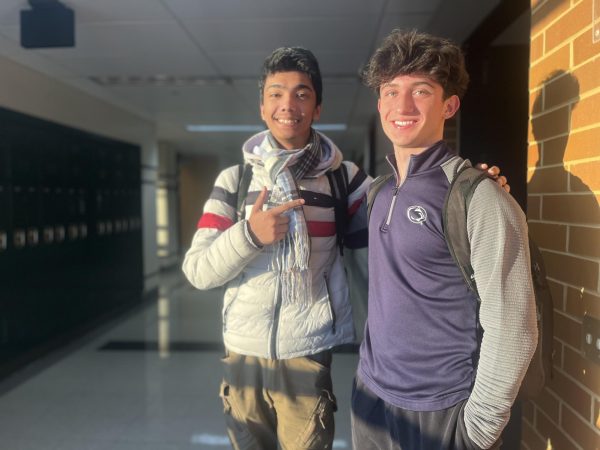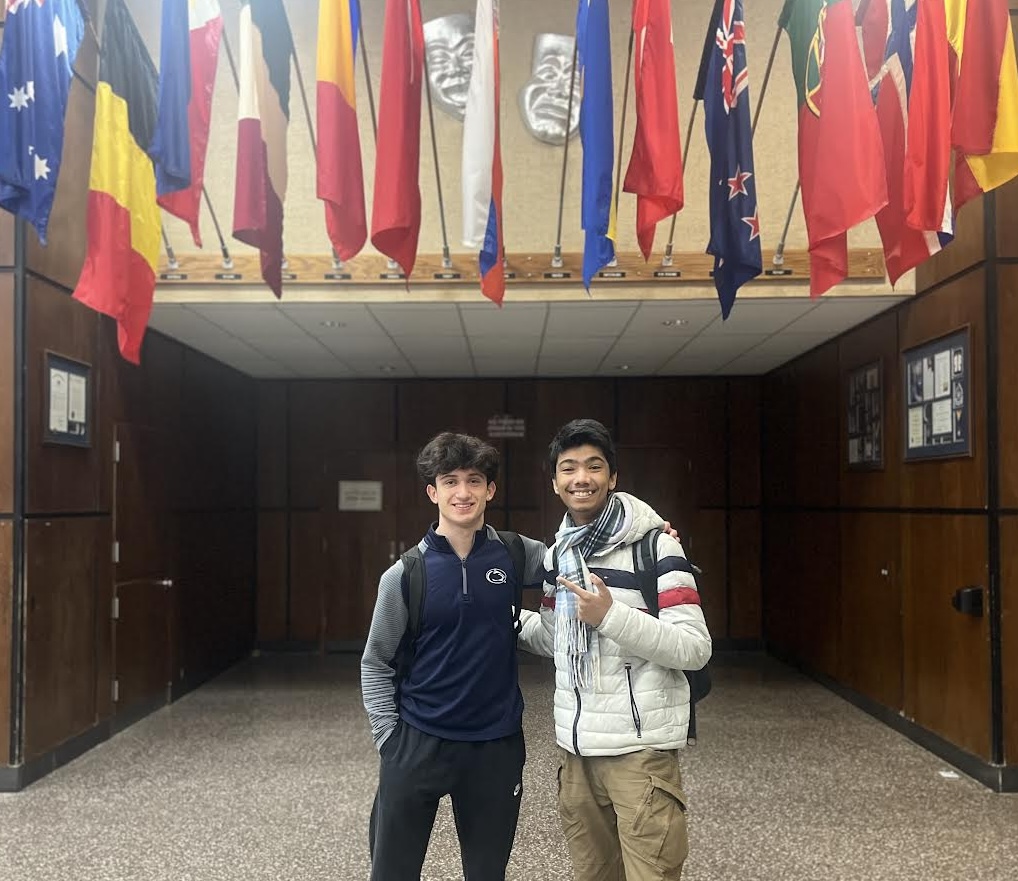This is not an article about Israel and Palestine. This is an article about people, fear, hate, and the dehumanization that divides us. This is an article about the lack of care we have when discussing serious topics. This is an article about isolating jokes, generalizations, weighted terms, and oversimplifications. To the people who clicked on my headline for numbers and outrage: This is not for you. But I implore you to stay, to meet the people behind the labels, and to hear their voices.
America is infected with a disease. A disease that presents itself in symptoms of intolerance and hasty conclusions. It’s something everyone has probably noticed; whether it’s society’s hateful stare at their differences, or that nagging voice in their head that begs them to judge. And now, amidst all the global turmoil, America is experiencing a flair up. North Penn High School is not an exception.
On November 8th, I attended a Muslim Student Association (MSA) meeting to hopefully gain some insight on our school’s culture. The Jewish Cultural Club (JCC) was also in attendance. It was eye opening–and after pushing all preexisting feelings aside and opening myself up to truly listen, I was able to learn more about people than I would have otherwise.
The president of North Penn High School’s MSA is Ayman Faraz. I talked to him yesterday about the current environment in our school, and he was able to provide a unique perspective on the issues surrounding it. He discussed with me in detail what he believed to be the root cause in the current increase of Islamophobia. An apathy to learning more.
“The obvious way people face islamophobia is direct attacks… but it’s generally an apathy on what’s transpiring. People don’t understand what’s actually going on. They know of my identity as a Muslim, and they’re hinting towards the fact that they think I’m on the wrong side of things. So, never an attack on me as a Muslim, but the position they assume I’m taking,” Faraz commented.
It may be human nature to fall into a trap of stereotypes and assumptions, but it’s a trap that only weakens our country and its freedoms. As seen numerous times in America’s history, scary world events lead to unjust profiling on a governmental level–Namely after September 11th, 2001, and the resulting war on terror.
But again, this isn’t an article about something as massive as 9/11 and its aftermath. This is an article about us as individuals. This is an article about not repeating the mistakes of the past– not on a societal level, but on a personal level. Assumptions are dangerous. We must be careful not to perpetuate them.
“[People] will only see a fraction of the statistics and make an assumption and a verdict on a certain topic. This can lead to people coming to dangerous conclusions about something, or worse, someone,” Faraz added.
However, these conclusions are almost never true. They’re just easy to believe, and simple to spread.

After talking to Faraz about what Islam means to him, I was able to learn far more about his culture than a 25 word tweet, a 30 second TikTok video, or a pretty infographic on Instagram.
“When someone learns more about what it means to be Muslim and what it means to me, they begin to realize ‘wait a minute, what was the part about Islam that was so bad? Islam not only promotes peace and necessity to a community, but it also teaches discipline and responsibility. You will [learn to be] a good person if you follow it correctly,” Faraz shared.
The peacefulness and love Faraz shared with me is often overlooked by apathetic people with preexisting notions, but it’s there, and it’s a shining light in our community that refuses to be stamped out by unjust hatred. It deserves to be heard.
After talking to Faraz, I was able to have a discussion with Kyle Bilinski, the vice president of our school’s Jewish Cultural Club. He also shared some valuable insights and unique perspectives on challenges now present in our community, especially regarding the unexplored plane of social media.
“Just generally speaking, the type of discourse I’ve seen about both Jews and Muslims after this has really changed. You go on TikTok and you see videos [making antisemitic jokes] and that type of thing I never saw before this happened. I’ve had a few friends make jokes about it, and they continue to do it because they don’t understand the significance of what’s happening. It’s subtle comments not meant to be harmful, but online you see a lot more hateful stuff posted purposefully,” Bilinski reflected.
We’re reminded now more than ever that our words have weight. Even words hastily typed out in the comment section of a YouTube video could unintentionally impact someone. Even worse, intentionally using international conflicts as an excuse to post hate speech and bigotry about any type of person is counterproductive and it bars us off from important discussions.
Despite the new wave of ignorance brought on by social media, this is something that affects America’s very core.
“This is something in America that has existed for a long time, but it’s definitely increased for [Jewish and Muslim people] after… At the end of the day everyone is human, and I feel like the dehumanization you see online of one side or the other makes it so much worse because it’s pitting these two entire groups of people against each other. I think that’s the most harmful thing to come out of this,” Bilinski stated.
Dehumanization of religious minorities, especially Jewish people, is something with a horrifying history as well. To pit two entire groups of people against each other, or to deny the pain and oppression they’ve both faced, is a massive societal injustice. And again, this isn’t an article about something as massive as genocide and surveillance states. This isn’t an article about losing freedom to a country that insists on oppression based on intolerant oversimplifications.
Except it is. How do you think global, history-changing acts of intolerance come to be in the first place? It’s because of people. People like me. People like you. People who decided it was far easier to dehumanize whole and diverse groups of people than it was to learn about them. A seed is planted, and it’s watered by our apathy.
To combat that apathy, here’s what Bilinski had to teach me about his relationship with Judaism.
“There’s a lot about my culture I think not a lot of people know about. Rosh Hashanah and Yom Kippur are the two most important holidays in Judaism, and not a lot of people know about them. They’re days of repentance where you think about how you’ve hurt yourself, how you’ve hurt other people, and how you can do better in the future. It’s an opportunity to reflect and try to do better… I love going to synagogue services. I don’t go very often, but when I do it’s very personal. You can have a really personal connection with [the rabbis] and in turn get closer with God,” Bilinski shared.
It’s a religion based on reflection and our impact on each other. To Bilinski, it’s a personal connection. It’s an opportunity to do better. It’s beautiful, and it’s easy to overlook that when we fall victim to a tumultuous society’s attempt to divide us.
The best way to combat this divide is through education. Ignorance is the friend of fear, and fear is the friend of hatred. Attend JCC and MSA meetings, do your own research, and most importantly, talk to people different from you. I’m not ignorant enough to believe a change will happen overnight, and that everyone in the American population will hold hands and sing songs in the morning. But I do believe that it’s a start. And maybe, just maybe, we’ll begin to cure our country’s intolerance.



Ayman Faraz • Nov 29, 2023 at 1:52 pm
Epic article.